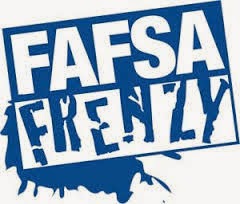In brief, a research university is one where a significant portion of the money to run the school comes in the form of research grants. This generally means that there is exciting, cutting-edge research going on, often with professors who are well-respected in their fields. While this can be exciting to be a part of, and the professors are, by necessity, staying current in their respective fields through the research they are conducting, it comes with a price. The professors' time is split between research and teaching - and this may impact the time and effort they are able to devote to their classes. Typically, but not always, research universities tend to be large, with intro level classes often having enrollments of hundreds of students. These classes are then split into discussion sessions run by graduate teaching assistants. So even though the university may boast professors who are Nobel Laureates, the average undergraduate student may never actually interact significantly with those instructors.
Liberal arts colleges and universities, on the other hand, tend to be smaller and focused almost exclusively on teaching undergraduates. Professors may or may not be involved in research in their respective fields, but if they are, the focus is still firmly on teaching. Class sizes tend to be smaller (often under 20 students per class) and students are able to develop a closer relationship with their instructors. The benefits of a liberal arts education include more interaction with professors, smaller class sizes, and a greater focus on teaching. Liberal arts colleges focus on developing excellent oral and written communication skills, as well as critical thinking skills, which can be applied to nearly any career. These types of colleges also tend to have excellent success rates in terms of students moving on to graduate or professional study. A 2010 article from CBS news laid out 5 reasons to attend a liberal arts college. Again, however, this comes with a price. The drawbacks: the university is less likely to be involved in cutting-edge research, there is often a smaller selection of majors, and students are unlikely to find specialized majors such as industrial design or dietetics.
There are some common misconceptions of liberal arts colleges. To dispel these myths and set the record straight, keep in mind the following:
- Liberal arts colleges are not necessarily connected with liberal politics or thinking. The culture at a liberal arts college could be predominantly conservative or predominantly liberal - it depends on the college.
- Most liberal arts colleges have strong programs in math and science as well as humanities, social science, and art.
- Liberal arts colleges have some of the highest success rates in students going on to graduate and professional schools.
- Liberal arts colleges are not inherently any more or less expensive than other types of schools - again, it depends on the school and the amount of financial aid you qualify for.
- You don't have to be interested in art to attend and succeed at a liberal arts college.
So which type of school is best for you? There are many factors that affect how well a college or university fits your needs, and the distinction between research university and liberal arts school is only one of these many factors. But in general, consider the following:
A liberal arts school might better fit your needs if:
- You want a personal connection and significant interaction with your professors
- You want small class sizes where interaction is a key part of the class
- You are planning to major in a general area of science, art, humanities, or social science
On the other hand, a larger research institution may be better if:
- Being around cutting-edge research is important to you
- You thrive in a larger, more diverse environment (socially and academically)
- Class size, particularly in intro classes, is not important to you
- You are interested in a more specialized field of study
More information can be found in this excellent article from Education.com Whatever you decide, be sure to thoroughly explore the offerings at schools you are interested in, and, if possible, try to visit the school in person to see how you would fit in (see post on Campus Visits from July 2012).
